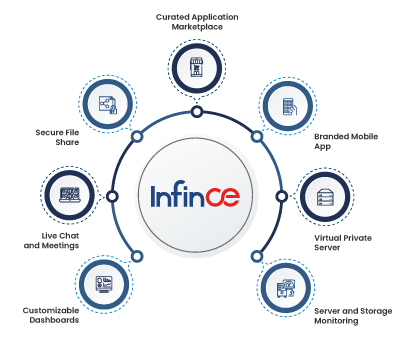How to choose an email service provider for your small business?
When you set up a new business or startup, one of the first things you need to do is to invest in a custom email and website domain for your small business. Once you have brought the rights, bring in an email service provider to create an email channel for you and your team.
Many startups make the mistake of going in for free email services in the beginning to cut
Evaluate these factors before choosing an ideal email service provider:
Related Reading: Why Your Startup Needs A Professional Email Account
1. Identify your Needs and Potential
Before going through the features of an email service provider, startups and small businesses must first look within their organization to identify their needs. Find the number of email accounts needed, the potential scale or rate of growth in emails expected over the next couple of years and the budgetary scope available for investing in IT platforms like email. Also, make a list of devices and other software tools you are likely to use in the coming years that need integration with your business email.
2. Evaluate the Compatibility of Platforms with Demand
Once you have your unique requirements listed down, it will be easy to cross-check on feature offerings from multiple email service providers. See whether the service provider can cater to your needs of scale, device friendliness, platform integration, and other technical requirements. Check for hidden clauses or limitations from service providers that prevent you from exercising full flexibility in your particular email operations such as subdomain requirements for different departments like sales, marketing or support.
3. Examine Cost options
For small businesses and startups, it is important to allocate budget for core business activities and hence very often the IT department has to work with limited financial resources. While selecting an email provider, it is important to evaluate their pricing options to see if they offer a perfect combination of features and cost-effectiveness. Modern-day cloud-based services offer subscription plans that bill you based on usage. This is the best option that lets you scale on demand while paying only for what you consume be it the number of user accounts, email storage size, features, etc. A service provider that offers seamless flexibility with prices for their subscription-based email services will be the most ideal candidate for your startup or small business.
4. Availability and Support
While choosing a service provider for your business email, it is important to pick one that has a well-defined Service Level Agreement (SLA) on service availability. For most startups, emails are the primary sales and marketing arsenal and often require round-the-clock availability and flexibility. As such, ensuring uninterrupted services for enabling such critical functions is an imminent feature that needs to be offered by the email service provider. While it is impossible to have a zero fault service, the response time they agree in the SLA is vital in making a choice. The faster the service provider can get your email back on track from a disruption, smoother and seamless will be your operations.
5. Security and Backup
At some point in time, businesses need to exchange sensitive data with their customers or employees through email. The information may include data pertaining to sensitive company credentials such as business models or financial statements. Hence, it is important to know how secure your email data is with the service provider you choose. Any scope for data leaks or unauthorized access should be eliminated at all costs. From a security perspective, ensure that the email provider offers a well-structured and redundant backup policy. The provider must offer fault free service operations in the event of a major issue.
Related Reading: 5 Ways Small Businesses Can Promote Collaboration Among Teams
It is important for startup businesses to entrust their core communication channels like email to a service provider that can help facilitate seamless availability, affordability, and flexibility of features. This is why cloud-based enterprise platforms like INFINCE are finding





